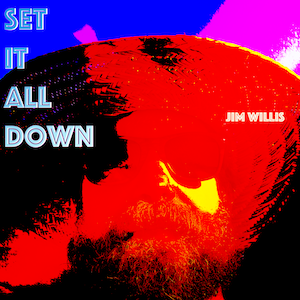@golden_meanie Two reasons: 1.) i’d like my tumblelog data to be stored on my server 2.) i like the challenge
-
-
Wedged in between kids, coding and cleaning I’m slowly turning wordpress into a functioning tumblelog platform at http://www.jimwillis.org
-
@tlabetti crap! No sitter tonight. Thanks a ton for thinking of us & merry Christmas!
-
Good Eats Meat Loaf Recipe: Recipes: Food Network
Good Eats Meat Loaf Recipe: Recipes: Food Network
The second time around, I tweaked this a bit to use some rather bland croutons (first attempt tasted like meat with croutons), added a bit more cayenne and a bit less thyme. Also used veal, pork and beef mix.
-
MediaShift . Digging Deeper::Your Guide to Hyper-Local News | PBS
MediaShift . Digging Deeper::Your Guide to Hyper-Local News | PBS
Hyper-local news is the information relevant to small communities or neighborhoods that has been overlooked by traditional news outlets.
-
How To: Create Custom iPhone Ringtones the Free and Apple Way
How To: Create Custom iPhone Ringtones the Free and Apple Way
use garageband to create ringtones from songs
-
City Beachfront Project Put on Hold
City Beachfront Project Put on Hold
via Keady: I think this is a bit of a blow to AP regardless of how Reidy tries to spin it.
-
@tlabetti – i could easily think of 315 songs you need to buy from the iTMS! Seriously, i which i had the extra cash, that’s a great deal.
-
Apple – Get a Mac – Watch The TV Ads
Apple – Get a Mac – Watch The TV Ads
The new mac ads are out for Christmas. Good stuff.
-
Ludwig van Beethoven – Piano Sonata No.29 In B Flat Major, Op.106 – I. Allegro
Current Spins


Check out my album Set It All Down on your favorite streaming service.
Posts Worth Reading:
Letterboxd
- Couldn’t finish this one. Not bad, just not what we needed at the moment.
- Looking for a comedy, this wasn’t but it did treat a tough topic in an accessible way. Still, not funny especially in light of our current political climate.
- Great spy movie, loved the style and story.
- (date approximate)
- (date approx)
- I love a frame tale and this one is spectacular
- Amazzzzzzing. Nothing like it.
- On location India footage was transportive.
- so much unexpected happening here. Perfect New Year’s Eve movie.
- Jude Law. Wow. Powerful storytelling. Must see.
Reading Notes
- Who profits from our constant state of dissatisfaction? The answer, of course, is painfully obvious. Every industry that sells a solution to a problem you […]
- the shifts have been in place for awhile. A certain kind of book—say those reviewed in the NYRB—will become like opera, or theater, or ballet, […]
- • No more struggle: “Whatever arises, train again and again in seeing it for what it is. The innermost essence of mind is without bias. […]
- . The EU invokes a mechanism called the precautionary principle in cases where an innovation, such as GMOs, has not yet been sufficiently researched for […]
- The real problem, in my mind, isn’t in the nature of this particular Venture-Capital operation. Because the whole raison-d’etre of Venture Capital is to make […]
Saved Links
- March 2025
- February 2025
- January 2025
- December 2024
- November 2024
- October 2024
- September 2024
- August 2024
- July 2024
- June 2024
- May 2024
- April 2024
- March 2024
- February 2024
- January 2024
- December 2023
- November 2023
- October 2023
- September 2023
- August 2023
- May 2022
- April 2022
- March 2022
- February 2022
- January 2022
- December 2021
- October 2021
- July 2021
- June 2021
- January 2021
- December 2020
- November 2020
- October 2020
- September 2020
- August 2020
- July 2020
- April 2020
- March 2020
- February 2020
- January 2020
- December 2019
- November 2019
- October 2019
- September 2019
- August 2019
- June 2019
- May 2019
- April 2019
- March 2019
- January 2019
- June 2018
- March 2018
- February 2018
- November 2017
- October 2017
- August 2017
- February 2017
- August 2016
- December 2015
- July 2015
- March 2015
- February 2015
- January 2015
- December 2014
- November 2014
- March 2014
- February 2014
- September 2013
- August 2013
- July 2013
- June 2013
- May 2013
- April 2013
- March 2013
- February 2013
- December 2012
- June 2012
- January 2012
- February 2010
- January 2010
- December 2009
- September 2009
- August 2009
- July 2009
- June 2009
- May 2009
- April 2009
- March 2009
- February 2009
- January 2009
- December 2008
- November 2008
- October 2008
- September 2008
- August 2008
- July 2008
- June 2008
- May 2008
- April 2008
- March 2008
- February 2008
- January 2008
- December 2007
- September 2001
- May 2001
- February 2001
- January 2001
- September 2000
- June 2000
- May 2000
- November 1999
- September 1998
- June 1998
- May 1998
- September 1997
- February 1997